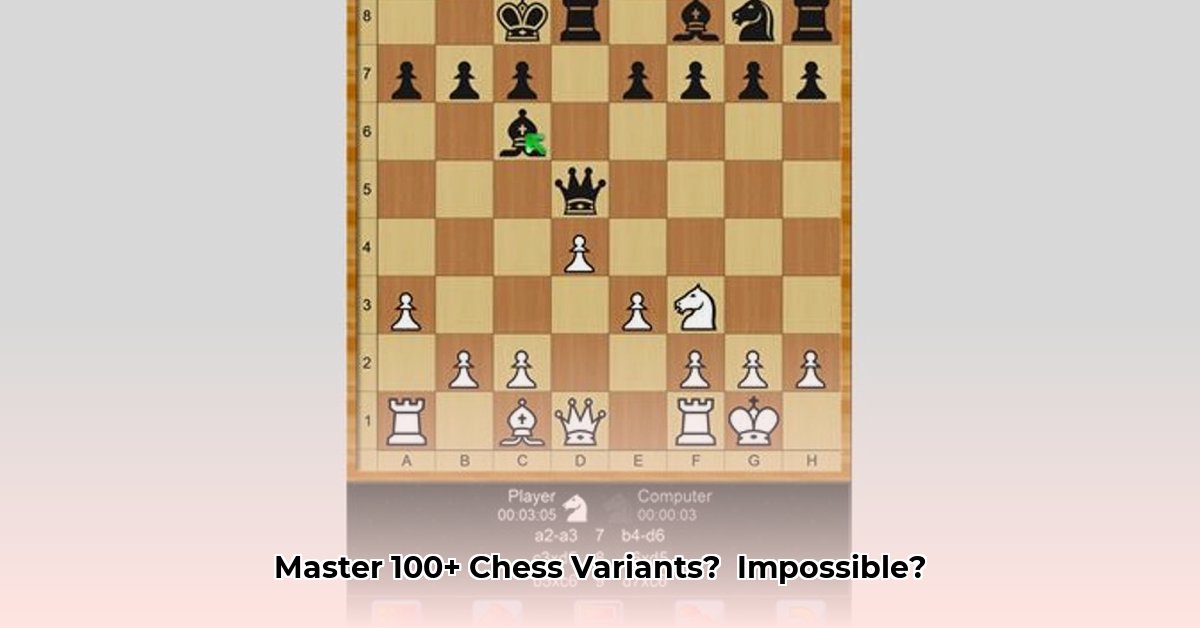
Ever wished you could play chess, but… differently? Tired of the same old 8x8 board and standard rules? Then ChessV might be your new favorite online chess platform. This free and open-source platform boasts over 100 different chess variants—a truly massive selection that dwarfs many commercial competitors. But how does it stack up against the established giant, Chess.com? This comparative analysis will help you decide which platform best suits your needs.
ChessV vs. Chess.com: A Feature-by-Feature Comparison
Both ChessV and Chess.com offer robust chess engines, but their target audiences and approaches differ significantly. Chess.com is a polished, user-friendly platform known for its massive community; it feels like a bustling chess city. ChessV, in contrast, resembles a sprawling workshop, encouraging user customization and contributions. The “best” platform depends entirely on your priorities.
| Feature | ChessV | Chess.com |
|---|---|---|
| Engine Power | Strong; varies by variant and chosen engine | Consistently strong; engines are regularly updated and improved |
| Variant Variety | Over 100 variants; highly customizable; users can even create their own! | Primarily standard chess; a limited selection of variations is available |
| User Interface | Functional but could benefit from visual improvements | Highly polished; user-friendly and intuitive |
| Community Size | Smaller, but highly engaged and innovative | Massive and active; diverse skill levels and playing styles represented |
| Cost | Completely free and open-source | Free (with ads); premium subscriptions unlock additional features |
| Customization Options | Extremely high; users can script their own modifications and additions | Minimal; largely restricted to visual settings |
ChessV: Leveraging the Open-Source Advantage
ChessV's core strength lies in its open-source nature. The publicly available source code allows for continuous evolution, with new game modes, unique pieces, and rule sets emerging regularly. It's a thriving laboratory of chess innovation! But this comes with trade-offs: the user interface, while functional, lacks the polish of Chess.com, and the smaller community may require more effort to find support. Isn't it interesting how open source fosters innovation while potentially compromising on immediate usability?
Chess.com: The Established Leader
Chess.com's dominance stems from its massive community and highly polished interface. It provides a wealth of learning resources, including lessons, puzzles, and detailed game analysis tools, making it a comprehensive chess ecosystem. However, this streamlined experience limits customization. Its closed-source nature restricts the ability to venture beyond standard chess rules compared to ChessV’s open-ended possibilities.
Creating Custom Chess Variants: A Comparative Look
Designing your own chess variant is enticing. Platforms like Chess.com provide tools, but truly unique mechanics might require coding expertise. Let’s explore custom variant creation on both platforms.
Chess.com's Custom Game Creation: Chess.com offers a user-friendly interface for casual variant creation. Modifying standard rules or introducing unique pieces is relatively straightforward. However, getting a custom game approved for rated play involves a rigorous process with sometimes opaque criteria overseen by the Custom Game Admins (CGA).
ChessV's Custom Game Creation (Hypothetical): Details on ChessV's custom variant creation capabilities are scarce. Based on its open-source nature, it might offer greater flexibility and potentially a less restrictive approval process, but this requires further investigation. Is ChessV’s flexibility a double-edged sword requiring greater technical expertise?
Choosing Your Chess Platform: A Balanced Perspective
Ultimately, the "best" platform depends on your priorities. ChessV caters to those seeking the thrill of unusual chess variations and complete control over the game. Chess.com shines for its polished experience, massive community, and structured learning resources. Many players find that utilizing both platforms complements their chess journey, leveraging Chess.com for structured learning and ChessV for creative exploration. The world of chess is vast and diverse. The ideal approach might be to embrace both platforms and continue exploring the endless possibilities within the game of chess.